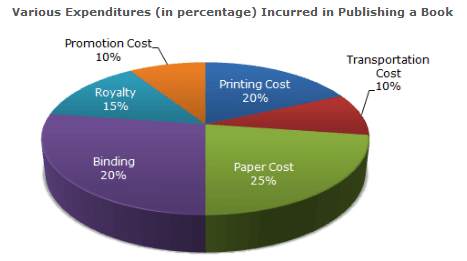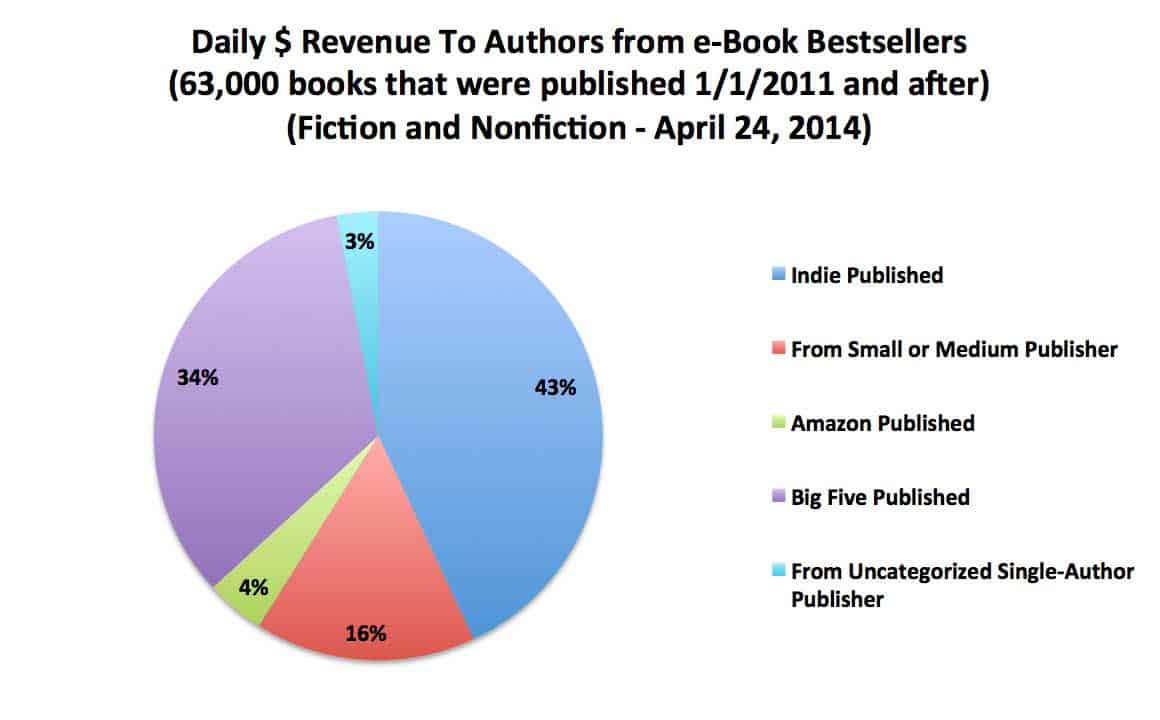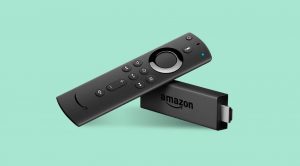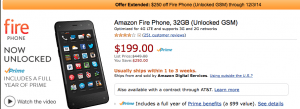#136632159 / gettyimages.com
9 August 2014
To: Jeff Bezos, Amazon.com ([email protected])
Michael Pietsch, Hachette ([email protected])
Dear Mr. Bezos and Mr. Pietsch,
Today is National Book Lovers Day and I’m writing to both of you to ask you to cease and desist this fight that is putting not only your two respective companies in the battle zone, but also authors and readers alike.
You both probably have valid points in this argument – and I’m hardly qualified to say who’s right and who’s wrong. One thing I’m sure of is that there are probably more than fifty shades of gray between both points of view to choose from. Could you find one of those areas to begin a mediation process?
Candidly, first and foremost, I’m an avid reader and self-confessed bookaholic. Since hopping on the eBook train over seven years ago, I’ve ceased to purchase print books. At all. To me, eBooks are a green revolution. I’m saving trees as my reading habit well outstrips the national high average of two books a month. I read about forty titles per month. And that’s a conservative estimate. Think of all those trees that don’t have to be sacrificed, paper that doesn’t have to processed and bleached (if using recycled) since my books, and so many other readers’, are digital not print.
I began my eBook journey using the iBooks app on my Apple products (iPhone, iPad, and MacBook), but I stopped purchasing books through the Apple iTunes/iBooks store when word came down of the price-fixing plan. Yes, I did receive a check in that class-action lawsuit, but that didn’t take the sour taste out of my mouth caused by publishers and eRetailers willful collusion to artificially inflate prices.
Once that news hit, I added the free Kindle App to my devices and began to purchase books via the Amazon website. I never looked back. Soon I purchased Kindle eReaders and now read exclusively on a Paperwhite. Why am I telling you all this? Because I’m not alone. There are readers everywhere who are like me. Who day-in and day-out purchase eBooks from Amazon and help keep both of you, and other eRetailers, in business.
#479994035 / gettyimages.com
When your contract disagreement first hit the media, I was curious. As the editor of a romance book blog (that in full disclosure is an Amazon Associate), I saw posts from friends on both sides of the issue. I read the Douglas Preston petition at authorsunited.net as well as the counter argument led by Hugh Howey with the Change.org petition.
Reading the front page article in the New York Times yesterday that focused on Douglas Preston and Amazon’s notice to authors today requesting letters to be sent to you, Mr. Pietsch (ReadersUnited.com), I’m more than a bit distressed. It doesn’t seem like either of you is willing to take the high road here and try to resolve this in a more amicable fashion.
First of all, I do think that Amazon.com has a very valid point about the “elasticity of eBook pricing.” As a customer (remember them?), I’m not about to pay more than $10 for an eBook and even wince at a price over $5.00. Why? Because I’ve also worked in media and communications for more than twenty years and realize that eBooks’ value is what YOU decide it is. The production costs for an eBook are hardly those of a paperback or hardcover, why should the cost be equivalent?
 |
| Graphic from TheOnlineTestCentre.com |
Let’s be frank. Books are all produced with digital layouts. So the basic structure of an eBook is at the foundation of your process of creating a book for print. You can argue (as I saw one publisher do) that there are additional costs associated with preparing that digital file to be listed for sale on the various eRetailer sites. Yes, I’m sure there is. Not only may each site take a different file type, but they may require the metadata and descriptions to be submitted in a slightly different format. I’m sure that it can be annoying to add additional staff to take on those jobs, but certainly not equivalent to the cost of purchasing paper, running printing presses, shipping books out, storage, handling remainders, etc. Plus you also have to figure in the additional revenues from the eBooks that PAY FOR the additional staff member(s) you may or may not have to hire. (I would think that publishing interns would be happy to get a foot in the door and take on jobs like these….)
As to Amazon.com suggesting author renumeration percentages. Well, if I were an author and receiving less than the 35% that Amazon suggested, or even less than 30%, I’d be distressed. Why? Because a 50/50 or even 50/40 split of what the publisher receives for an eBook would seem to be a truly fair assessment that would (a) cover publisher’s cost and (b) provide income for a author, independent of print sales, who then can focus on writing more books. A win win situation.
Do I think Amazon.com should make this decision for you, Mr. Pietsch? Absolutely not. After all, it’s your business to decide how much to reimburse your writers. But if you want to continue to keep them and not have them jump ship and begin to only publish Indie titles, then you’re going to need to be fair. The barn door is open on the topic of renumeration and you’re not going to close it again. No, I’m not referring to those authors with six or seven figure advances, but those who are your bread and butter.
Let’s face it. I’ve been watching the bestseller list the past few weeks and have seen Indie books, priced at $0.99, hit the top ten lists. Why? Because they’re books people want to read and can afford. The authors receive up to 70% of the purchase price depending on how they publish their title (yes, I’m talking about KDP). Some of these authors may have submitted manuscripts to you and been turned away – and then published them independently. To great success.  Graphic from Authorearnings.comThe publishing industry is definitely in the midst of a revolution as established and new authors may publish independently without the stigma that “self-publishing” used to carry. Are all the books published independently good? No. But many are. Especially if the authors pay for independent editing and design. There’s also promotion of the titles, but the ironic thing about that is that many independent and traditionally published authors are already promoting the books themselves. That’s part of the social media revolution, which is not to say your in-house publicity teams are not doing their job. It’s just that authors know that by building their own dedicated fan base they’re going to sell more titles. So in order to keep your authors you’re probably going to need to give them a bigger slice of the pie. Just sayin’.
Graphic from Authorearnings.comThe publishing industry is definitely in the midst of a revolution as established and new authors may publish independently without the stigma that “self-publishing” used to carry. Are all the books published independently good? No. But many are. Especially if the authors pay for independent editing and design. There’s also promotion of the titles, but the ironic thing about that is that many independent and traditionally published authors are already promoting the books themselves. That’s part of the social media revolution, which is not to say your in-house publicity teams are not doing their job. It’s just that authors know that by building their own dedicated fan base they’re going to sell more titles. So in order to keep your authors you’re probably going to need to give them a bigger slice of the pie. Just sayin’.
Now, as a reader, consumer, and book critic, what do I think the two of you should do?
FOLLOW THE FREE MARKET
Certainly not collude on prices – in any way. But be open to the fair market idea. What does the public feel is a fair price for an eBook? What will bring in the most profit for you, your eRetailer partners, and the authors who write the books? I’m guessing Amazon.com will win that argument hands-down. They have the research and figures to back them up. But does that mean that no eBook can be priced above $9.99? I wouldn’t think that’s fair. Perhaps there are some eBooks that are more expensive to produce layout-wise and would easily deserve a higher price point.
STREAMLINE THE EBOOK SUBMISSION PROCESS
But perhaps you, Mr. Piesch and Mr. Bezos could get together with other publishers and eRetailers and work out a standard submission form for eBooks. I’m sure there might be minor differences, but the standardizing submission (excepting for the digital file itself – ePub, Mobi, PDF, AZW3) would, I’m sure, make all of your lives easier.
TAKE THE AUTHORS AND CONSUMERS OUT OF THE EQUATION
If I were an author published either by one of your imprints, Mr. Piesch, or independently via Kindle Direct Publishing, Mr. Bezos, I’d be concerned right now. Your argument is making everyone nervous and gradually impacting sales. As Mr. Preston noted in his article his sales are cut in half. Other lesser-known authors, who don’t receive large advances, are feeling the pinch too. Even if you can’t come to a total agreement on these issues, please take the authors out of the equation. Come up with a temporary agreement while you work on the fine points.
COME UP WITH A WORKABLE TRUCE
So, on National Book Lovers Day why don’t the two of you agree to disagree, but at the same time come up with a workable truce until you find a real solution. That’s right, Mr. Bezos, take the Hachette imprint books out of Amazon’s jail and let customers pre-order them again. Mr. Pietsch, work with him, please.
Let readers and authors everywhere celebrate National Book Lovers Day knowing that both of you can act as adults and think of others first. Truly, from the outside, this squabble that has escalated to a near war, seems like playground bullying by the both of you. If you were children you’d be given a time-out. As adults your actions have ramifications that effect far too many people. Take a deep breath and realize that no one may be a winner, but you both could compromise and call it a draw or even a tie-finish. Then you both could claim winning ground, but best of all, consumers and authors would win too.
Sincerely,
Emsy Van Wyck
Editor, Fab Fantasy Fiction
cc: [email protected], [email protected]**********OFFICIAL RESPONSE TO THE OPEN LETTER************
Here’s the response I received this morning from Hachette’s CEO, Michael Pietsch:
From: “Pietsch, Michael” <[email protected]>
Subject: Amazon’s letter to readers and authors
Date: August 12, 2014 at 11:53:51 AM EDT
To: “[email protected]” <[email protected]>
Thank you for writing to me in response to Amazon’s email. I appreciate that you care enough about books to take the time to write. We usually don’t comment publicly while negotiating, but I’ve received a lot of requests for Hachette’s response to the issues raised by Amazon, and want to reply with a few facts.
· Hachette sets prices for our books entirely on our own, not in collusion with anyone.
· We set our ebook prices far below corresponding print book prices, reflecting savings in manufacturing and shipping.
· More than 80% of the ebooks we publish are priced at $9.99 or lower.
· Those few priced higher—most at $11.99 and $12.99—are less than half the price of their print versions.
· Those higher priced ebooks will have lower prices soon, when the paperback version is published.
· The invention of mass-market paperbacks was great for all because it was not intended to replace hardbacks but to create a new format available later, at a lower price.As a publisher, we work to bring a variety of great books to readers, in a variety of formats and prices. We know by experience that there is not one appropriate price for all ebooks, and that all ebooks do not belong in the same $9.99 box. Unlike retailers, publishers invest heavily in individual books, often for years, before we see any revenue. We invest in advances against royalties, editing, design, production, marketing, warehousing, shipping, piracy protection, and more. We recoup these costs from sales of all the versions of the book that we publish—hardcover, paperback, large print, audio, and ebook. While ebooks do not have the $2-$3 costs of manufacturing, warehousing, and shipping that print books have, their selling price carries a share of all our investments in the book.
This dispute started because Amazon is seeking a lot more profit and even more market share, at the expense of authors, bricks and mortar bookstores, and ourselves. Both Hachette and Amazon are big businesses and neither should claim a monopoly on enlightenment, but we do believe in a book industry where talent is respected and choice continues to be offered to the reading public.
Once again, we call on Amazon to withdraw the sanctions against Hachette’s authors that they have unilaterally imposed, and restore their books to normal levels of availability. We are negotiating in good faith. These punitive actions are not necessary, nor what we would expect from a trusted business partner.Thank you again and best wishes,
Michael Pietsch
____________________________________
Michael Pietsch | Chief Executive Officer
237 Park Avenue New York NY 10017 | 212.364.1479


